Science, Technology, Engineering & Math (STEM) careers are found across many industries. Still, they represent one of 16 career clusters that the U.S. Department of Labor uses to track employment. People with expertise in these areas can work in laboratories, businesses, universities, hospitals and other venues. Additionally, people not trained in STEM might also be found in this category if they perform some function, like accounting, for an organization or business, such as an engineering firm, whose core activity involves one of these disciplines. Learn more about the U.S. Department of Labor’s industry clusters and their economic outlook.
Adults using these resources to help students explore careers may also find it helpful to use the Career Journeys Supplemental Materials we’ve prepared for teachers and counselors.
Getting young people interested in science
For Andre Samuel, Ph.D., President & Chief Executive Officer of the Citizen Science Lab, science comes alive through hands-on experimentation.
Putting it all together as an industrial engineer
Overseeing a couple of school projects, including one in shop class, put Liza Rigucci on a path to become an industrial engineer with Mascaro Construction.
Working seamlessly between office and shop floor
Of course, he liked math and science, but a high school robotics class became the impetus for Stephen Gerba’s career as an Automation Engineer for DMI Companies.
Forensics takes curiosity
Faith Musko, Ph.D., says forensic toxicologists need math and science skills above all, but it also helps if they’re always inclined to ask “Why?”
Making sure traffic flows smoothly
Taking a high school CAD (Computer-Aided Design) course shifted Paul Manyisha’s career interest from journalism to civil engineering. As a Tunnel Manager for PennDot, he’s now charged with making sure traffic runs smoothly through tunnels on our region’s roadways, troubleshooting everything from traffic emergencies to maintenance problems.
Sea World visit sparked interest in marine science
Sarah Brooks began her career in marine science before moving on to become a teacher and then a Consortium Program Director. She said marine science takes curiosity, a love for research, and strong analytical and math skills.
Applying hard science to social issues
As a scientist at the intersection of science and policy, Neil Brown enjoys “simplifying the complicated and complicating the simple.”
Unlocking the mysteries of the human brain
As a Systems Programmer & Analyst Lead for UPMC, Erica Tamburo is helping identify patterns in the human brain so that scientists can improve understanding of, and care for, depression, anxiety, dementia, and other neurocognitive problems.
Chemistry degree opens multiple avenues
Sarah Rossi finds that her work as a chemist with DMI Companies balances an equation that’s important to her—it provides both the solitude of the lab and the team atmosphere of the production floor.
For broadcasting, troubleshooting is a top skill
Now a Mobile Unit Engineer at NEP Group, Inc., George Ribich began developing his interest and skills in broadcasting at age 12, working at a community television station.
Technical service means working with people
A physics major now working as a Technical Service Representative for Covestro, Kaitlyn Tautkus-Berry finds her science background important, but her people skills are just as critical to the job.
Engineering a move into music
For Micah Azuoru, an engineering career became a means to an end, helping him fund a foray into music production
Cleaning dirty water and soil
A Project Manager and Senior Geologist for Tanaq Environmental, LLC., Meriam Senoussi says anyone considering a career in her field needs to be organized and like the outdoors.
Turning two passions into life as an entrepreneur
Once a television weatherman, Jeff Verszyla combined training in broadcast media and his interest in meteorology to become an entrepreneur, giving forecasts over his own website and social media.
Being detail-oriented is a critical skill in research
As a Research Assistant at UPMC Children’s Hospital, Lauren Risser focuses on public health projects in youth violence prevention.
Academia brings benefits and challenges of unstructured time
As a University of Pittsburgh Professor and Associate Dean of Medical Research, Donald DeFranco’s work is a combination of teaching and research.
Get comfortable being uncomfortable
To prepare for work in product development, PPG Industries Chemist Brittany Katofsky recommends taking a speech class.
Much about transportation engineering is about technology
Anthony Castellone didn’t take a straight path to become a Transportation Division Manager for Pennoni. But his current role brings together what he’s learned from previous career steps.
Project management brings different challenges every day
As a Project Manager for Mascaro Construction Co., Baily Keilbach finds every day is different except for one thing: there’s always a new problem to solve. Because his background is in engineering, problems are right up his alley.
Reducing the carbon footprint one truck at a time
With a degree in civil engineering, a love of data, and a penchant for problem-solving, Justine Russo was the perfect fit for her job as Director of Sustainability & Business Intelligence when Pitt Ohio began trying to reduce the carbon footprint inherent in transporting goods by truck.
The evolution of a dream to work for NASA
Doing software development for NASA appeals to Nichole Boscia because she enjoys the creativity, the flexible work schedule, and the somewhat independent nature of the work.
Subscribe to our YouTube channel!
Click the button below to receive updates on all of our video content.







